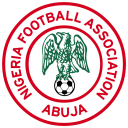by Kazeem Olalekan
The inspiration for ‘The Doctrine of Universal Truth’ came to me on the 30th of December 2012 (detailed in the book). By 30th of January 2013, I had completed the book and ready to publish. For me, that was the landing of a personal eagle. Coincidentally, another eagle – the green variety – landed on the 10th of February 2013. As it so happens, there are parallels between the events in the book and the landing of the Green Eagle.
On the 10th of February 2013, the Nigeria national football team – the Green Eagles – won the 2013 African Cup of Nation held in South Africa; the madiba country. The team defeated Burkina Faso by a lone goal to lift the coveted cup for the 3rd time in the national history (in 1980, 1994 and now 2013) – see video.
I was in Nigeria in 1980 and that team that lifted the cup for the first time in that tournament, on home soil, have now past into the Nigerian folklore. Who could forget the likes of Best Ogedengbe, Okey Isima, Mudashiru Lawal, Christain Chuckwu, Aloysius Atuegbu, Felix Owolabi, Emmanuel Okala, Henry Nwosu and of course Segun Odegbami. The manager was the legendary Brazilian: Otto Gloria and Nigeria was playing the beautiful game – there was a lot of haaay haaay haaay (fancy football) which eventually led to the defeat of the dispirited Algerians by three clear goals.
That feat was repeated 14 years later in 1994 but that was a difficult year for me on so many levels. Football was the least of my worries but it was a great show by the players I know so well (not personally but it does feel like that sometimes). The likes of Peter Rufai, Uche Okechukwu, Eguavon, Nduka Ugbade, Okafor, Adepoju, Ekoku, Finidi George, Jay-jay Okocha, Sunday Oliseh, Amokachi, Amuneke, Siasia, Stephen Keshi and baba Yekini (RIP). It was a combination of Eaglets (the baby eagles) coming of age and some international heavyweights, some of whom will later grace the Premiership.
And now in 2013, just as the ink was drying on my book – the Eagles landed again! The Super Eagles under the direction of Stephen Keshi (remember him?) lifted the hat trick of cups in the African Cup competition. There was so many heroes in the squad led from the back by goalkeeper, Enyeama. Obi Mikel of Chelsea was a leader on the field and earned him the Man of the Match award. The story of Victor Moses is gripping! Here was a young man who lost his parents (his father was a pastor), in a senseless religious riot in Kaduna! A week later with his travel being paid for by relatives, Moses came to Britain as an asylum seeker. Going back to play for his country was so courageous on so many levels and the team deserve a place in Nigeria’s history books.
What does this mean?
You are probably now wondering: What does this mean? The same question asked by Jaggy and Ayo in the book. I will like to go back to that first win in 1980, the one I witnessed whilst still in Nigeria. That match took place at the Surulere stadium in Lagos. In yoruba, Surulere means there is reward in being patient. Life, as I observed in my book, is a marathon not a sprint and there is infinite reward in being patient.
Segun Odegbami, the key Nigeria striker in 1980 (and just like me, also from Abeokuta), got married prior to the tournament and his marriage was immortalised in the ‘Igba Laiye’ album by Chief Commander Ebenezer Obey in 1979. That album is packed with wisdom that has stood the test of time. I will try now to explain some of the messages in Side A of that album.
‘Ode Ya Amilo’ It is a prayer to God for safe passage as I go out. And the music cut to ‘Oluwa Mi Mo Njade Lo‘: God as I go out to do my daily work, you are the only One that I know. Clearly it is prudent to put God first in any of our endeavours. The theme of prayer is reflected in the ‘the doctrine of universal truths’. The song reflects on how God has protected us as we toil and not allowing us to go hungry. ‘Je Nwi Temi‘ is about the imperative to say my piece to the world. God has given me mouth to say my piece. On a personal note, God has empowered me to write ‘the doctrine of universal truths’. As the great writer, Chinua Achebe, wrote: “Until the lions have their own historians, the history of the hunt will always glorify the hunter”. The music then cut to the wedding of Segun Odegbami in ‘Segun Odegbami Se Igbeyawo‘: It is a piece that celebrates the wedding and run through a roll call of the guests. ‘Congratulation Odegbami o..Goodbye to bachelor life…’ It also celebrates how wonderful the footballing skills of Odegbami was. A word of wisdom: ‘Do it well anything you do, anything you do….give it your best’. And the track ended with ‘It Is A Goal‘ from Odegbami. Do I need to explain that?
I hope you enjoy the book and maybe a few discussion points.

